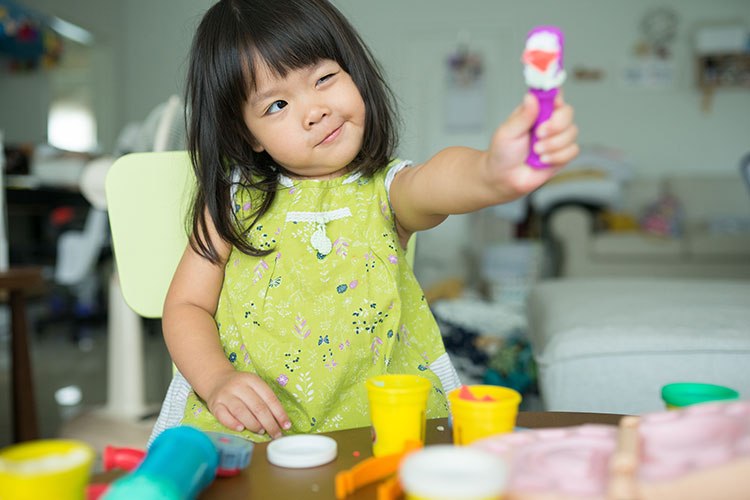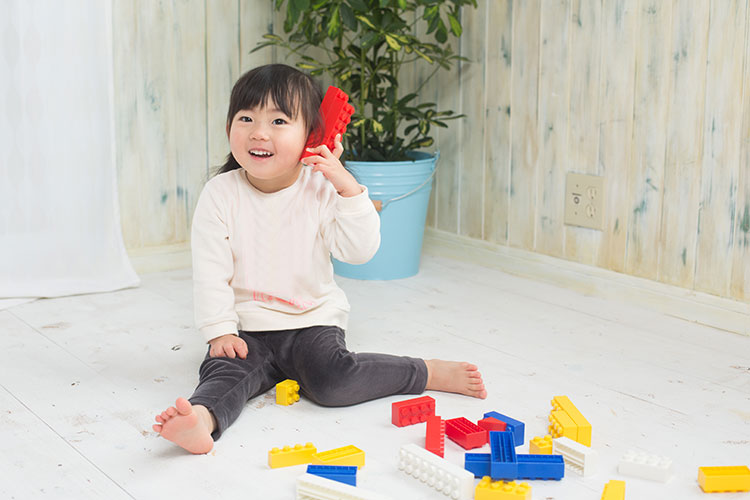Did you know that 90% of brain development occurs in the first five years1? It's only natural to want to focus on our children achieving high IQ scores and emphasise their reasoning and problem-solving abilities during this key period. But could this single-minded focus on academics be deterring creativity?
We spoke to Dr Wendy Liew, a Paediatrician and Paediatric Neurologist, to find out more and see how we can help our kids get their creative juices flowing earlier on in life.

According to Dr Liew, nutrition and parental stimulation both play crucial roles in encouraging creativity early on. She says, "Your child's diet lays the foundation for well-rounded development, while stimulation strengthens the connections within your child's brain to encourage cognitive, emotional and communication skills. This enables your child to have better problem-solving abilities, recall, memory, verbal fluency and creativity2".
Why is creativity important and how does it impact my child's development?

From young, children have a natural curiosity to figure out how the world works. It is an eagerness to explore, learn new things and discover. Curiosity is key as it helps children develop a healthy imagination and at the same time, stimulates creativity3.
Did you know that fostering creativity not only helps your child develop mentally and socially, but emotionally too4? In fact, children who are encouraged to think creatively generally exhibit higher self-esteem and motivation5; are better problem solvers and are more adaptable to changes6. They are also more confident individuals, feeling good while creating7.
Creativity can even help develop your child's cognitive skills, that is your child's ability to think, understand, remember, imagine and work out what might happen next8. It involves imagination, communication, physical development and even enhances future literacy skills. For example, working with art materials can help improve your child's fine motor skills and eye-hand coordination, whilst engaging in creative play can help your little one learn new vocabulary and associate pictures with words9.
Dr Wendy Liew shares, "The experiences that children have during their first few years of life can significantly enhance the development of their creativity. Creative experiences not only help your child express their feelings and learn communicative skills, but also enable them to develop, practice and improve hand-eye coordination and motor skills. It further fosters mental growth in children by providing them with opportunities to try out ideas and problem solve."
Nutrition Tip!
The most important meal is breakfast. Start the day with a nutritious and well-balanced meal, one that incorporates all the food groups, including milk. Supplement your child's diet with milk formula which contains important nutrients like DHA, vitamins, minerals and prebiotics. Starting the day with a nutritious, well-balanced meal helps your child better concentrate and learn to their full potential10, especially at the start of their creative journey.
Expert Resource:
|
Dr. Wendy Liew
Paediatrician; Clinical Interest: Child Neurology SBCC Baby & Child Clinic t: +65 6732 2292 f: +65 6738 3793 290 Orchard Paragon #17-12 S(238859) sbcc.paragon@sbcc.sg| ww.sbcc.sg Paediatrics. Child development. Obstetrics & Gyneacology |
References:

